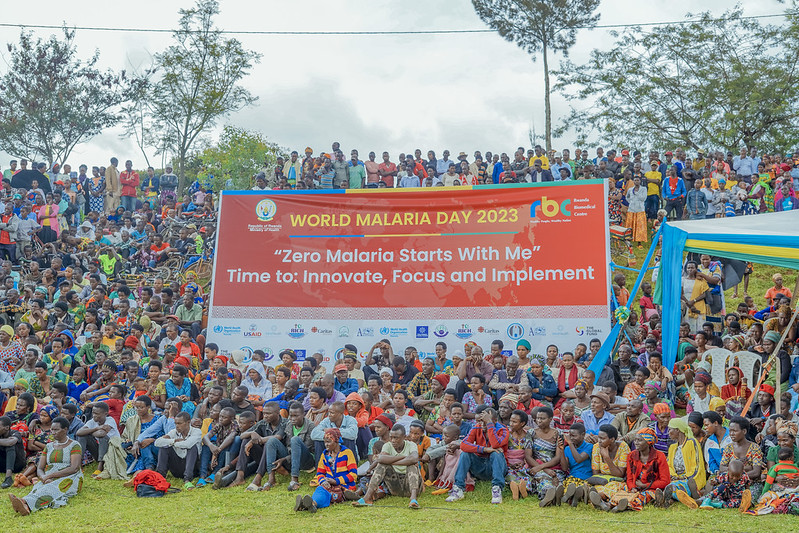Gicumbi, April 25: As Rwanda joined the world in Celebrations of the World Malaria Day, the role of each citizen was stressed to eradicate this ancient and terrible disease.
World Malaria Day is an opportunity to shine a spotlight on the Global and local efforts to control malaria and also an occasion to highlight the need for continued investment, innovation and sustained political commitment for Malaria prevention and control.
Running under the theme, “Zero Malaria Starts with Me”, Time to innovate, focus and implement.
Rwanda has significantly reduced malaria incidence over the past six years, even if measures to eradicate the parasitic disease are ongoing nationwide.
Malaria incidence per 1,000 persons dropped from 321 in 2018 to 76 in 2022 as the severe Malaria cases fell from 7,054 to 1,831 people in the same time.
Uncomplicated cases moved from 3.9 million less than a million from 2018 to 2022 whereas the people who succumbed to the disease were 264 in 2018, they lowered to 71 in 2022.
During the ceremony, Dr. Gallican Rwibasira who was representing the Ministry of Health urged the residents to keep up the fight against the Malaria.
“Measures to eradicate this disease have not changed: Sleeping under a mosquito net, clearing nearby ponds and bushes, we strictly urge you to follow those measures without fatigue,” he told Gicumbi residents on Tuesday, April 25.
Malaria killed more than 600,000 globally in 2021, according to the World Health Organisation (WHO).
Some of the measures to control Malaria in Rwanda include the distribution of mosquito nets and Indoor Residual Spraying (IRS) and the related tablets.
So far, RBC distributed bed nets in 18 districts that are not covered by indoor residual spraying and also distributed bed nets for children under five and pregnant women. Indoor residual spraying was carried out in 12 districts with a high burden of malaria.
“People need to keep malaria prevention measures, such as always sleeping under a mosquito net, seeking treatment as early as possible, and making use of the community health workers’ services available at the village level,” Director of Vector Control at RBC, Dr Emmanuel Hakizimana, said.
At every village there are four community health workers, who have the capacity to take tests and treat malaria to prevent severe cases, he said.
Today, 55 per cent of all malaria cases are treated at the community level by the community health workers deployed in every village.
Hakizimana said the Government of Rwanda is planning to begin administering malaria vaccines approved by the WHO.
The vaccine for three- to five-year-old children is said to be 60 per cent effective in reducing severe disease, he said.
Globally in 2021, there were an estimated 247 million malaria cases reported in 84 malaria-endemic countries, an increase of two million cases compared with 2020, according to WHO.
The estimated deaths in 2021 were 619,000 in 2021 compared to 625,000 in 2020.
